Search Images
Browse Content (p. 1607)
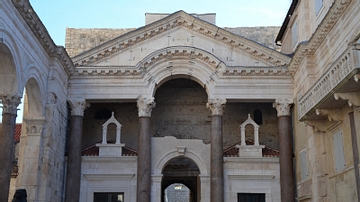
Image
Peristyle of Diocletian's Palace
The peristyle is the heart of Roman emperor Diocletian's Palace (Split, Croatia) built at the turn of the fourth century CE.
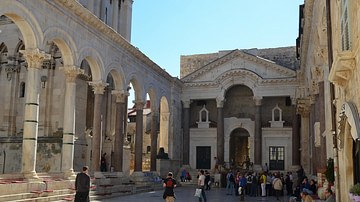
Image
Diocletian's Palace, Split
The peristyle is the heart of Roman emperor Diocletian's Palace (Split, Croatia) built at the turn of the fourth century CE.
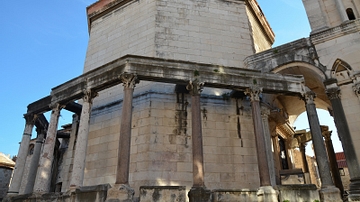
Image
Diocletian's Mausoleum
The octagonal mausoleum of Diocletian (now Cathedral of St. Domnius) inside Diocletian's Palace, Split (Croatia). Diocletian's Palace was built between 293-303 CE in preparation for his retirement on 1 May 305 CE.
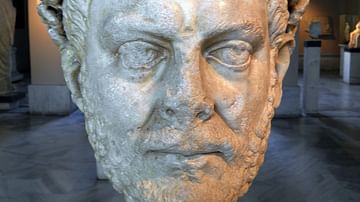
Image
Roman Emperor Diocletian
Head of the Roman emperor Diocletian, 284 - 305 CE (Istanbul Archaeology Museum).
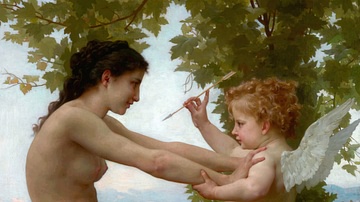
Image
A Young Girl Defending Herself Against Eros
A nude girl sits in an ancient landscape, trying to push away Eros / Cupid, the god of love, who is holding an arrow. Nevertheless, she is smiling, suggesting that she might not really want to prevent him from hitting her with the arrow of...
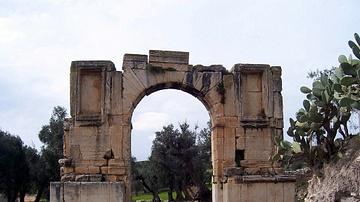
Image
Arch of Alexander Severus, Dougga
The Arch of Alexander Severus is a Roman triumphal arch located in Dougga Tunisia (ancient Thugga). The arch was built in 228 CE, in gratitude to the emperor for his beneficence towards the city. It functioned as one of the city gates, at...
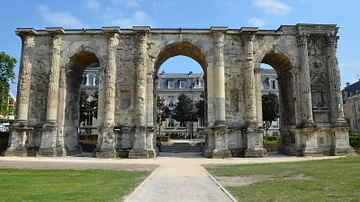
Image
Porte Mars, Reims
The Porte Mars, is an ancient Roman triumphal arch in Reims (Roman Durocortorum, capital of Gallia Belgica) dating from the 3rd century CE. It is the widest arch in the Roman world.
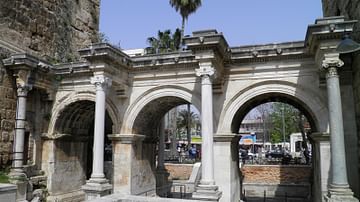
Image
Gate of Hadrian, Antalya
Hadrian's Gate in Antalya (Turkey) was built in honor of the Roman emperor Hadrian, who visited the Roman city (Attaleia) in 130 CE.
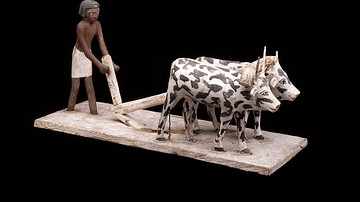
Image
Wooden model of a man ploughing with oxen
From Egypt Middle Kingdom, about 2040-1750 BC An ancient Egyptian farmer at work This model was originally placed in a tomb. Models showing various stages in the production of food were placed in wealthy burials of the Middle Kingdom...
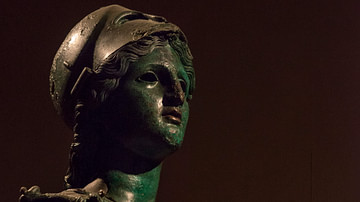
Image
Minerva of Arezzo
The 'Minerva of Arezzo' is a bronze Etruscan statue dating to the 3rd-2nd century BCE. (Etruscan Archaeological Museum of Florence)